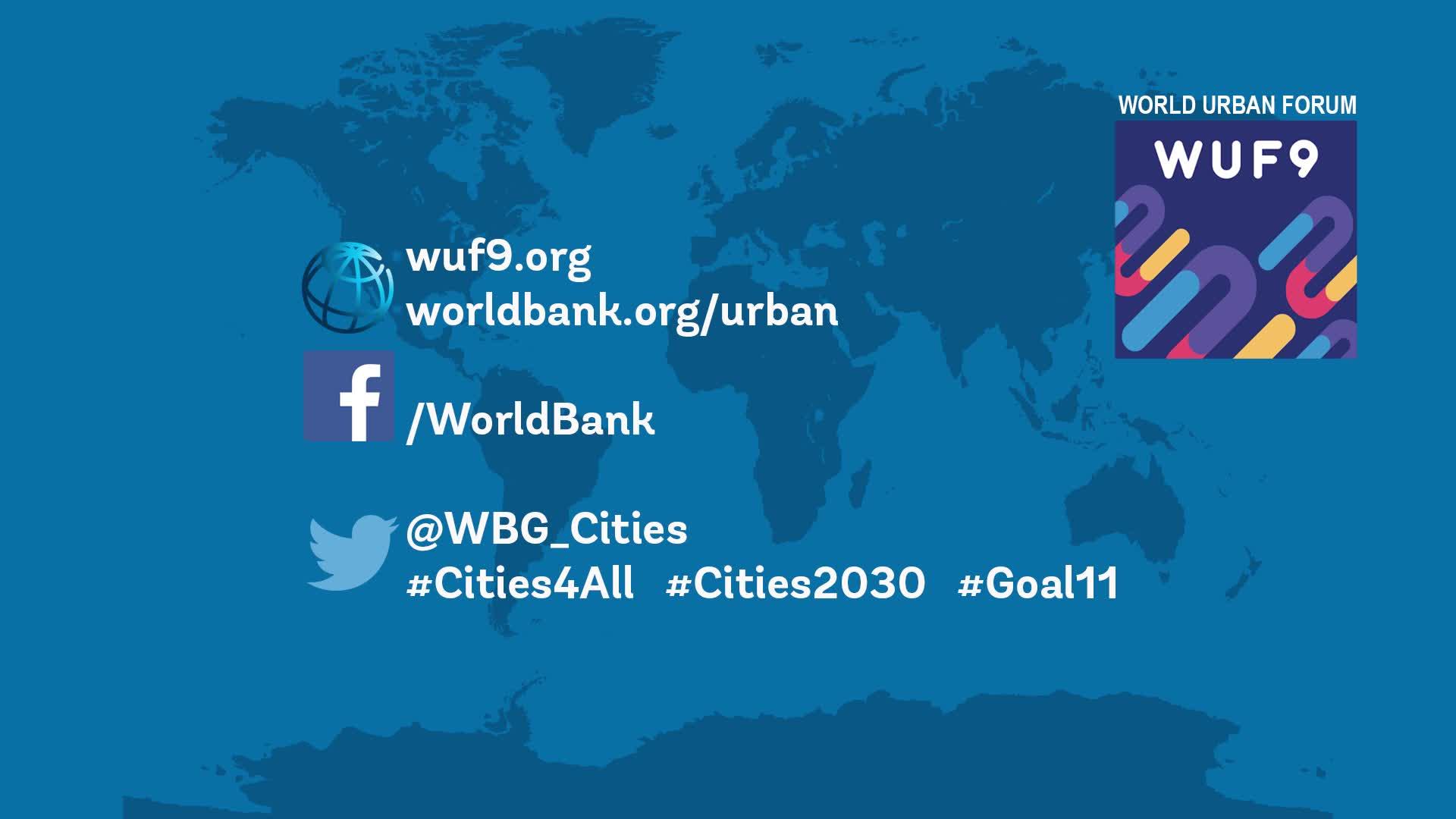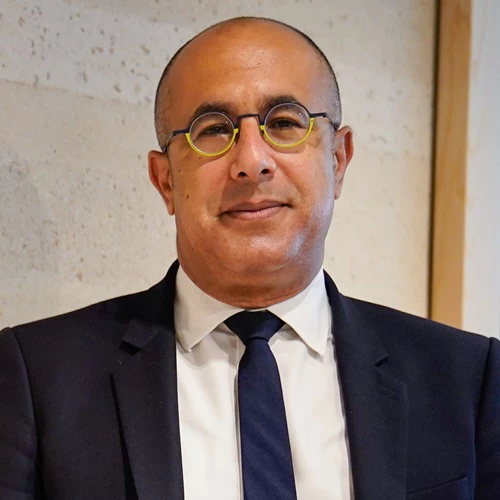Over a year ago, national and city leaders from around the world gathered at the
Habitat III conference in Quito to endorse the
New Urban Agenda, which sets a new global standard for sustainable urban development and guides global efforts to achieve the Sustainable Development Goals in the era of climate change.
In just three weeks, early February 2018, representatives of the world’s countries and cities will convene again to discuss “Cities 2030, Cities for All: Implementing the New Urban Agenda” at the world’s premier conference on cities – the Ninth Session of the World Urban Forum (WUF9) in Kuala Lumpur, co-hosted by UN-Habitat and the government of Malaysia.
[[avp asset="/content/dam/videos/ecrgp/2018/jun-19/on_the_road_to_wuf_____ede_ijjasz-vasquez_and_sameh_wabha_hd.flv"]]/content/dam/videos/ecrgp/2018/jun-19/on_the_road_to_wuf_____ede_ijjasz-vasquez_and_sameh_wabha_hd.flv[[/avp]]
In the video, World Bank Senior Director Ede Ijjasz-Vasquez (@Ede_WBG) and Director Sameh Wahba (@SamehNWahba) share the World Bank's three priorities at the World Urban Forum.
Stay connected to receive updates from the World Bank at the World Urban Forum:
2. Promoting territorial and spatial development
Territorial development helps us understand cities not only as individual entities, but also the connectivity between them that allows faster economic growth and links people to better jobs.
It helps governments understand how to undertake new urban development in a way that connects infrastructure with the localities during that process. It also helps cities that are close to each other work together and understand how to improve spatial connectivity for better metropolitan governance and development.
[Download report: Africa’s Cities: Opening Doors to the World ]
3. Enhancing urban resilience
Cities are very vulnerable to climate change. The concentration of people and the risks they face today to natural disasters, such as floods, droughts, and heatwaves, will increase due to climate change. Today, 1.5 billion people live in flood-prone or landslide-prone areas. By 2030, without major action to boost urban resilience, climate change will push up to 77 million urban residents into poverty.
Cities, because of the concentration of economic growth and population, also have a very critical role in the fight against climate change. They can take very proactive actions to reduce the greenhouse gas emissions related to their economic development, while adapting to increasing disaster risks. Resilient cities are important for ensuring equitable economic development.
The World Bank’s new City Resilience Program, supported by the Global Facility for Disaster Reduction and Recovery (GFDRR), has been designed with the ambition of enabling cities to scale up their preparation, capital investment planning, and the investments needed to finance urban resilience to help make their populations safer.
[Download report: Investing in Urban Resilience ]
To succeed in the fight against climate change and to advance in the implementation of the New Urban Agenda, cities need the support of their national governments and the international community. At the same time, the leadership of mayors is fundamental for building inclusive, resilient, productive, and sustainable cities and communities for all.
We look forward to discussing and advancing the New Urban Agenda with our partners worldwide at the upcoming World Urban Forum!

In just three weeks, early February 2018, representatives of the world’s countries and cities will convene again to discuss “Cities 2030, Cities for All: Implementing the New Urban Agenda” at the world’s premier conference on cities – the Ninth Session of the World Urban Forum (WUF9) in Kuala Lumpur, co-hosted by UN-Habitat and the government of Malaysia.
[[avp asset="/content/dam/videos/ecrgp/2018/jun-19/on_the_road_to_wuf_____ede_ijjasz-vasquez_and_sameh_wabha_hd.flv"]]/content/dam/videos/ecrgp/2018/jun-19/on_the_road_to_wuf_____ede_ijjasz-vasquez_and_sameh_wabha_hd.flv[[/avp]]
In the video, World Bank Senior Director Ede Ijjasz-Vasquez (@Ede_WBG) and Director Sameh Wahba (@SamehNWahba) share the World Bank's three priorities at the World Urban Forum.
Stay connected to receive updates from the World Bank at the World Urban Forum:
- Learn about the World Bank's events at WUF9
- Follow @WBG_Cities on Twitter and facebook.com/WorldBank on Facebook
- Subscribe to the Sustainable Cities blog
- Subscribe to the Sustainable Communities newsletter
- Visit worldbank.org/urban for more information
As the world’s largest financier on urban development, the World Bank will focus on three issues at the World Urban Forum that are essential for implementing the New Urban Agenda toward the Sustainable Development Goals:
1. Financing the New Urban Agenda
We know that $4.5 – $5.4 trillion is needed to finance the global urban infrastructure gap. Only 3% of this amount is available through official development assistance. This means that we must find new ways to help cities scale up their action in terms of financing their urban infrastructure needs. This includes:
- Strengthening local government’s municipal finances and own-source revenue generation
- Helping cities set up efficient systems of inter-governmental fiscal transfers
- Enabling cities to enhance their creditworthiness and access capital markets
- Capturing land values to finance cities’ urbanization needs
2. Promoting territorial and spatial development
Territorial development helps us understand cities not only as individual entities, but also the connectivity between them that allows faster economic growth and links people to better jobs.
It helps governments understand how to undertake new urban development in a way that connects infrastructure with the localities during that process. It also helps cities that are close to each other work together and understand how to improve spatial connectivity for better metropolitan governance and development.
[Download report: Africa’s Cities: Opening Doors to the World ]
3. Enhancing urban resilience
Cities are very vulnerable to climate change. The concentration of people and the risks they face today to natural disasters, such as floods, droughts, and heatwaves, will increase due to climate change. Today, 1.5 billion people live in flood-prone or landslide-prone areas. By 2030, without major action to boost urban resilience, climate change will push up to 77 million urban residents into poverty.
Cities, because of the concentration of economic growth and population, also have a very critical role in the fight against climate change. They can take very proactive actions to reduce the greenhouse gas emissions related to their economic development, while adapting to increasing disaster risks. Resilient cities are important for ensuring equitable economic development.
The World Bank’s new City Resilience Program, supported by the Global Facility for Disaster Reduction and Recovery (GFDRR), has been designed with the ambition of enabling cities to scale up their preparation, capital investment planning, and the investments needed to finance urban resilience to help make their populations safer.
[Download report: Investing in Urban Resilience ]
To succeed in the fight against climate change and to advance in the implementation of the New Urban Agenda, cities need the support of their national governments and the international community. At the same time, the leadership of mayors is fundamental for building inclusive, resilient, productive, and sustainable cities and communities for all.
We look forward to discussing and advancing the New Urban Agenda with our partners worldwide at the upcoming World Urban Forum!





Join the Conversation